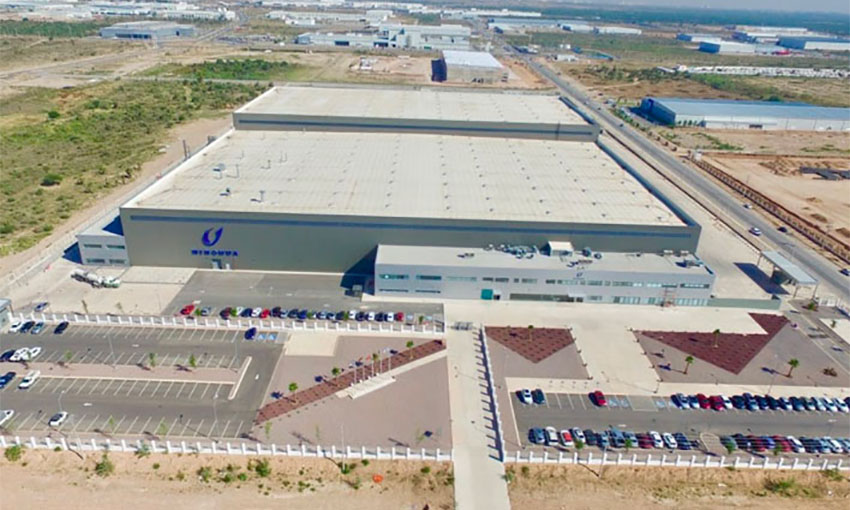RIO DE JANEIRO, BRAZIL – In the next 36 months, one in every two new investors seeking industrial real estate space in Mexico will be of Chinese origin, specifically in key markets in the north of the country, according to CBRE consulting firm.
“And it is not something that happened in one year (…) more and more investors continue to pour in from China,” said Lyman Daniels, president of CBRE Mexico, during his participation in this year’s first online forum of the Mexican Association of Private Industrial Parks (AMPIP).
Daniels emphasized the hike registered between 2018 and 2019, when the share of Chinese investments -in the Class A and B industrial parks he monitors- grew 6 times, from 4 to 24 companies setting up in the country, respectively.
Although in 2020 the number of new Chinese companies stood at 12, the prospects for a greater influx of these Asian companies have grown significantly for the near future.
In another separate conference at the same AMPIP forum, Enrique Perret, general director of the US-Mexico Foundation, pointed out some signals in the political context introduced by the new US government, which have an impact on the migratory “phenomenon” of Chinese companies in Mexico.
“Joe Biden released an executive order last week and said ‘I am mandating my entire cabinet to analyze and establish public policies that will disengage us, that will make us more independent from Chinese supply chains,’ and considering that 50% of the new industrial park clients come from China, it makes perfect sense,” he said.
“In addition, two months ago the Exim Bank (US Export-Import Bank) established new origin regulations for the entry of products into the United States, for the import of goods into the United States, where it reduces these requirements so that other Latin American and European countries may meet the requirement that previously only China could,” explained Perret.
In fact, the president of CBRE Mexico stressed that “everywhere there is an opportunity” for the influx of new tenants in industrial parks, driven by the recovery period that the Mexican economy will experience this year, although it will be seen over a longer period of time compared to its northern neighbor.
The keys to Mexico’s rebound will lie in job creation and the inflow of new foreign investment or the expansion of existing investment, according to Daniels.
During 2020, 139 companies either made new or expanded investments in industrial parks, for the manufacturing (24.6%), automotive (18.3%), retail (14.1%) and construction (7.7%) sectors, according to CBRE data presented at the AMPIP forum.
Mexico’s Class A and B industrial real estate market consists of 84.5 million m2 , with 13 major markets accounting for 52.4 million m2 .
In 2020, gross absorption by sector comprised the following: manufacturing 30%, logistics 28%, automotive 12% and e-commerce 13%, the latter being one of the fastest growing due to the boost in this activity driven by the health crisis, social confinement and changes in consumer habits.

In fact, 4 of the top 10 transactions carried out in 2020 involved the e-commerce industry, a product of Mercado Libre and Amazon’s operations.
“The new market trends are e-commerce, cold storage (refrigeration) and data centers,” Daniels said.
A special case has emerged in industrial markets such as Reynosa, where the border closure with the United States prompted by the emergence of Covid-19 and the obstacles for the labor force living in Mexico to travel to the plants located in the U.S., have led some of these companies to migrate to Mexico, both in logistics and manufacturing operations.
“At CBRE we believe that investor confidence as of the last quarter of 2020 has improved and there is an appetite from international investors to enter the industrial market. There is significant interest from foreign buyers, particularly in the north of the country due to the growth prospects in demand that stem from [Mex/US/Can) T-MEC trade and the configuration of a new supply chain based in and for North America,” said Lyman Daniels.
The executive also said that the other treaties or trade agreements that Mexico has signed with other regions or countries, beyond T-MEC, will be critical to the country’s economic rebound.


